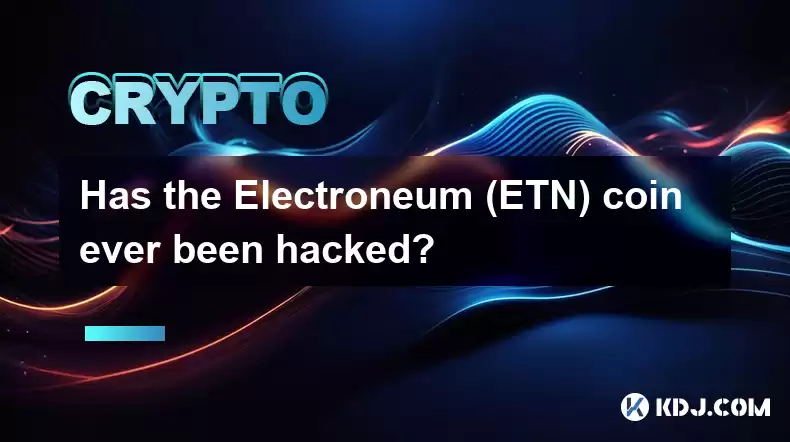-
 Bitcoin
Bitcoin $119700
0.53% -
 Ethereum
Ethereum $4508
5.39% -
 XRP
XRP $3.270
2.86% -
 Tether USDt
Tether USDt $1.000
0.00% -
 BNB
BNB $831.0
2.92% -
 Solana
Solana $189.6
6.89% -
 USDC
USDC $0.9999
-0.01% -
 Dogecoin
Dogecoin $0.2350
2.92% -
 TRON
TRON $0.3500
1.34% -
 Cardano
Cardano $0.8420
6.73% -
 Chainlink
Chainlink $23.26
8.42% -
 Hyperliquid
Hyperliquid $44.42
1.44% -
 Stellar
Stellar $0.4512
3.16% -
 Sui
Sui $3.895
5.15% -
 Bitcoin Cash
Bitcoin Cash $618.7
5.88% -
 Hedera
Hedera $0.2601
4.43% -
 Ethena USDe
Ethena USDe $1.001
0.01% -
 Avalanche
Avalanche $24.45
4.90% -
 Litecoin
Litecoin $128.1
5.41% -
 Toncoin
Toncoin $3.454
1.64% -
 UNUS SED LEO
UNUS SED LEO $9.065
0.44% -
 Shiba Inu
Shiba Inu $0.00001359
3.41% -
 Uniswap
Uniswap $11.42
1.78% -
 Polkadot
Polkadot $4.165
6.36% -
 Cronos
Cronos $0.1664
-0.50% -
 Ethena
Ethena $0.8108
1.79% -
 Dai
Dai $1.000
0.00% -
 Pepe
Pepe $0.00001213
5.22% -
 Bitget Token
Bitget Token $4.438
0.25% -
 Aave
Aave $313.3
5.02%
Has the Electroneum (ETN) coin ever been hacked?
Electroneum employs robust security measures such as 2FA, cold storage, server security, and blockchain technology to safeguard user funds and data, effectively containing past hacking incidents.
Dec 31, 2024 at 01:19 pm

Key Points:
- Electroneum's Security Features
- Past Hacking Incidents
- Protecting Electroneum Holdings
Electroneum's Security Features
Electroneum prioritizes security to safeguard users' funds and data. Key security measures include:
- Two-Factor Authentication (2FA): Adds an extra layer of security by requiring a second verification step using a code sent to a user's mobile phone.
- Cold Storage: Majority of Electroneum funds are stored offline in secure cold wallets, isolated from the threats of online hacking.
- Server Security: Electroneum employs robust server security measures, including firewalls, intrusion detection systems, and regular security audits.
- Blockchain Security: Electroneum leverages the inherent security of blockchain technology, ensuring the immutability and transparency of transactions.
Past Hacking Incidents
Electroneum has faced hacking attempts, as is common in the cryptocurrency industry. However, these incidents were effectively contained, and no user funds were compromised:
- 2018 Phishing Attack: Attackers attempted to obtain users' private keys through a phishing campaign. Electroneum swiftly alerted users and provided guidance to protect their accounts.
- 2020 Exchange Hack: A third-party exchange that traded Electroneum was hacked, resulting in the loss of some user funds. Electroneum advised users to withdraw their funds to secure wallets and offered assistance to affected individuals.
Protecting Electroneum Holdings
To safeguard Electroneum investments, users should adhere to best practices:
- Use Strong Passwords: Employ complex, unique passwords and store them securely.
- Enable 2FA: Activate two-factor authentication to prevent unauthorized account access.
- Choose Trusted Wallets: Opt for well-established and secure wallets, whether hardware or software-based.
- Be Wary of Scams: Verify the authenticity of any communication claiming to be from Electroneum and avoid sharing sensitive information.
- Regularly Update Software: Ensure Electroneum software and wallet versions are up-to-date to address potential vulnerabilities.
FAQs
Q: Has Electroneum ever been hacked?
A: Electroneum has faced hacking attempts, but no user funds have been compromised.
Q: Is Electroneum safe to invest in?
A: Electroneum implements robust security measures, including 2FA, cold storage, and blockchain technology. However, all investments carry risk, and users should proceed with caution.
Q: What precautions can I take to protect my Electroneum holdings?
A: Use strong passwords, enable 2FA, choose trusted wallets, be wary of scams, and regularly update software.
Q: What is Electroneum's response to hacking incidents?
A: Electroneum promptly alerts users, provides guidance, and assists affected individuals in recovering their funds.
Q: How can I report a suspected Electroneum hack?
A: Contact Electroneum Support immediately to report any suspicious activity or suspected hacks.
Disclaimer:info@kdj.com
The information provided is not trading advice. kdj.com does not assume any responsibility for any investments made based on the information provided in this article. Cryptocurrencies are highly volatile and it is highly recommended that you invest with caution after thorough research!
If you believe that the content used on this website infringes your copyright, please contact us immediately (info@kdj.com) and we will delete it promptly.
- Unich's OTC Exchange: Surging with $1.2B Volume – What's the Hype?
- 2025-08-13 02:50:11
- MoonBull's Explosive Moves: Your Crypto Whitelist Ticket to Ride!
- 2025-08-13 02:30:11
- MAGACOIN Finance: Don't Miss the Presale Bonus!
- 2025-08-13 02:30:11
- Trump's Crypto Kingdom: $2.4 Billion and Counting
- 2025-08-13 02:50:11
- Solana, LSTs, and SEC Approval: A New Dawn for Crypto?
- 2025-08-13 02:55:12
- Bitcoin's Profit Surge: Unpacking the BTC Value Boom
- 2025-08-13 02:55:12
Related knowledge

How to purchase Aragon (ANT)?
Aug 09,2025 at 11:56pm
Understanding Aragon (ANT) and Its PurposeAragon (ANT) is a decentralized governance token that powers the Aragon Network, a platform built on the Eth...

Where to trade Band Protocol (BAND)?
Aug 10,2025 at 11:36pm
Understanding the Role of Private Keys in Cryptocurrency WalletsIn the world of cryptocurrency, a private key is one of the most critical components o...

What is the most secure way to buy Ocean Protocol (OCEAN)?
Aug 10,2025 at 01:01pm
Understanding Ocean Protocol (OCEAN) and Its EcosystemOcean Protocol (OCEAN) is a decentralized data exchange platform built on blockchain technology,...

How to invest in Kyber Network Crystal v2 (KNC)?
Aug 12,2025 at 05:21pm
Understanding Kyber Network Crystal v2 (KNC)Kyber Network is a decentralized liquidity hub built on the Ethereum blockchain that enables instant token...

Where can I buy UMA (UMA)?
Aug 07,2025 at 06:42pm
Understanding UMA and Its Role in Decentralized FinanceUMA (Universal Market Access) is an Ethereum-based decentralized finance (DeFi) protocol design...

What exchanges offer Gnosis (GNO)?
Aug 12,2025 at 12:42pm
Overview of Gnosis (GNO) and Its Role in the Crypto EcosystemGnosis (GNO) is a decentralized prediction market platform built on the Ethereum blockcha...

How to purchase Aragon (ANT)?
Aug 09,2025 at 11:56pm
Understanding Aragon (ANT) and Its PurposeAragon (ANT) is a decentralized governance token that powers the Aragon Network, a platform built on the Eth...

Where to trade Band Protocol (BAND)?
Aug 10,2025 at 11:36pm
Understanding the Role of Private Keys in Cryptocurrency WalletsIn the world of cryptocurrency, a private key is one of the most critical components o...

What is the most secure way to buy Ocean Protocol (OCEAN)?
Aug 10,2025 at 01:01pm
Understanding Ocean Protocol (OCEAN) and Its EcosystemOcean Protocol (OCEAN) is a decentralized data exchange platform built on blockchain technology,...

How to invest in Kyber Network Crystal v2 (KNC)?
Aug 12,2025 at 05:21pm
Understanding Kyber Network Crystal v2 (KNC)Kyber Network is a decentralized liquidity hub built on the Ethereum blockchain that enables instant token...

Where can I buy UMA (UMA)?
Aug 07,2025 at 06:42pm
Understanding UMA and Its Role in Decentralized FinanceUMA (Universal Market Access) is an Ethereum-based decentralized finance (DeFi) protocol design...

What exchanges offer Gnosis (GNO)?
Aug 12,2025 at 12:42pm
Overview of Gnosis (GNO) and Its Role in the Crypto EcosystemGnosis (GNO) is a decentralized prediction market platform built on the Ethereum blockcha...
See all articles

























































































